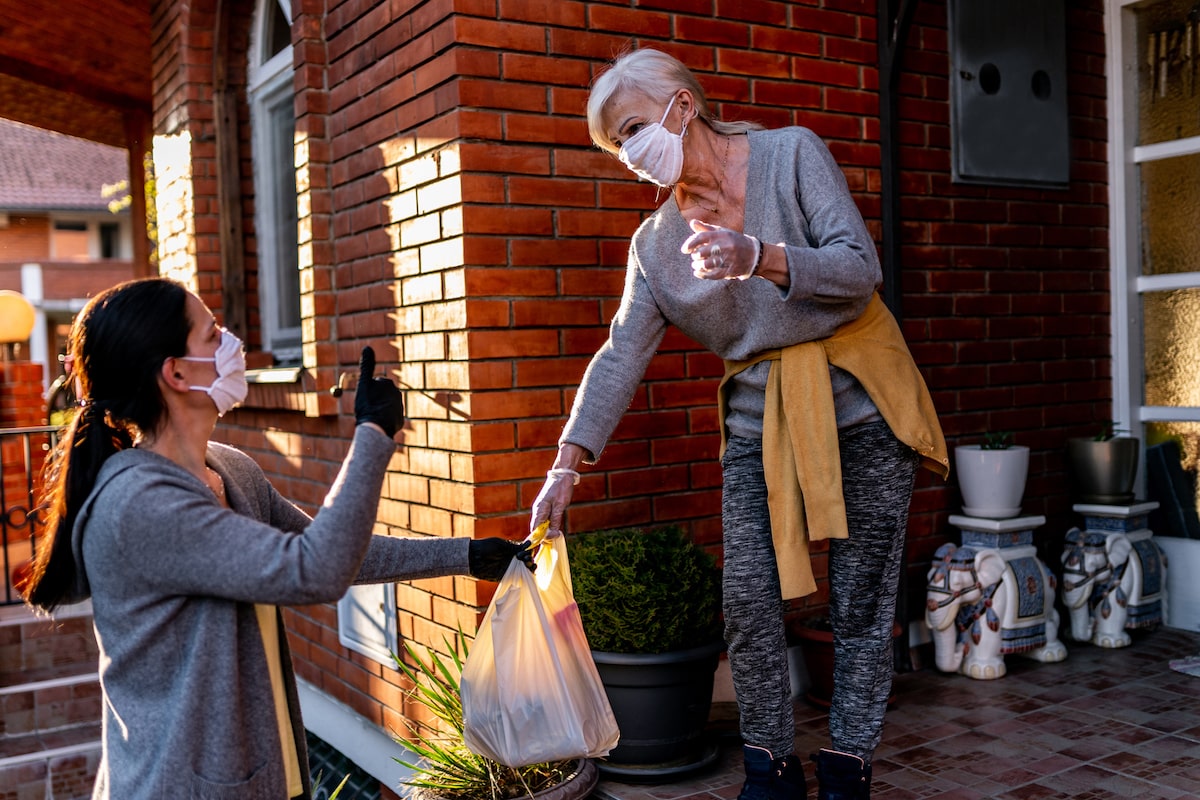<< Back
How All of Us Can Help Protect Cancer Patients During COVID-19

July 31, 2020
Editor’s note: This recently ran as an op-ed in The Hartford Courant.
By Drs. Peter P. Yu and Andrew L. Salner
The coronavirus pandemic has upended every component of our lives, but it is having a particularly profound effect on how hospitals treat cancer patients. We are recalibrating quickly, but the responsibility to protect our patients, friends and neighbors falls on us all.
Patients with cancer face extraordinary stresses as they grapple with a life-threatening disease. To manage their way through this personal crisis, they rely on support from their family and health care team.
But what if the family and friends they rely upon fall ill themselves, or if overnight the health system is turned upside down? As many as a quarter of cancer patients deal with loss of income or health insurance in the best of times, let alone when the entire economy is in free fall. COVID-19 places patients already dealing with one life threatening illness with the specter of, though no fault of their own, a second one.
Early experience with COVID-19 suggests that cancer patients are more vulnerable to the virus and do less well if infected. Treatments of cancer involve high risk procedures such as surgery, chemotherapy and radiation therapy and entail frequent visits to hospitals and clinics at a time when sheltering place is the rule of the day. Physicians, always mindful of the risks of cancer treatments, must now reassess that risk in case their patients acquire a viral infection.
Throughout the world, oncologists are recalibrating the treatment of cancer. For the large majority of patients, we have continued treatment as usual, with enhanced measures to assure safety. We have limited visitors in our cancer centers, enhanced cleanliness, and provided barriers to decrease traffic between our centers and the hospital. We screen all patients, staff and others entering our cancer centers with temperature checks, questions about symptoms and COVID-19 testing as needed.
Selected surgeries that had been deferred to keep patients out of the hospital are now being performed. Radiation and chemotherapy treatments are sometimes being modified to pose, we hope, less risk to patients without sacrificing effectiveness. These decisions are not made lightly or in isolation but only after discussion and consensus within the Cancer Institute medical community and in collaboration with other U.S. cancer centers and professional societies of cancer physicians.
Our cancer site-based multidisciplinary teams of doctors, nurses and researchers, which historically meet weekly to discuss patients and develop consensus on management, have met virtually with greater frequency and urgency over the past few months to explore challenging scenarios and develop consensus on how best to manage our patients.
Hand hygiene, social distancing, mask wearing and stay-at-home strategies have begun to result in fewer hospitalizations in our state. While this progress is most exciting, it does not reflect lower virulence on the part of the virus, particularly for those who are at increased risk due to advancing age, immune-compromise or comorbid conditions. Our cancer patients frequently fit into many of those categories.
We will need to learn how to resume health care in an age of social distancing and personal protective equipment. New ways to diagnose and treat COVID-19 and safely treat all other health problems will emerge. New technologies such as telemedicine, data analytics and renewed appreciation for the role of public health and disease prevention are some of the good that will come out of our collective suffering.
Until we have an effective vaccine and/or proven mitigating treatments for the virus, the increased risk for disease and death will continue. While our government leaders will do their best to provide a game plan to safely move forward, their guidance does not take away our individual responsibility and accountability to our family and community. We as residents and neighbors must do all we can individually to continue to lower the risk of a second surge.
Even as we ultimately lessen some of the current constraints on our lives, our continued focus on proven strategies such as wearing our masks, social distancing and compulsive hand washing helps to ensure we are each doing the best we can to protect those most vulnerable.
Dr. Peter P. Yu is physician in chief at the Hartford HealthCare Cancer Institute at Hartford Hospital.
Dr. Andrew L. Salner is Medical Director of the Cancer Institute at Hartford Hospital.
Not feeling well? Call your healthcare provider for guidance and try to avoid going directly to an emergency department or urgent care center, as this could increase the chances of the disease spreading.
Click here to schedule a virtual visit with a Hartford HealthCare-GoHealth Urgent care doctor.
Stay with Hartford HealthCare for everything you need to know about the coronavirus threat. Click here for information updated daily.
Questions? Call our 24-hour hotline (860.972.8100 or, toll-free, 833.621.0600).
Get text alerts by texting 31996 with MoreLife in the message field.